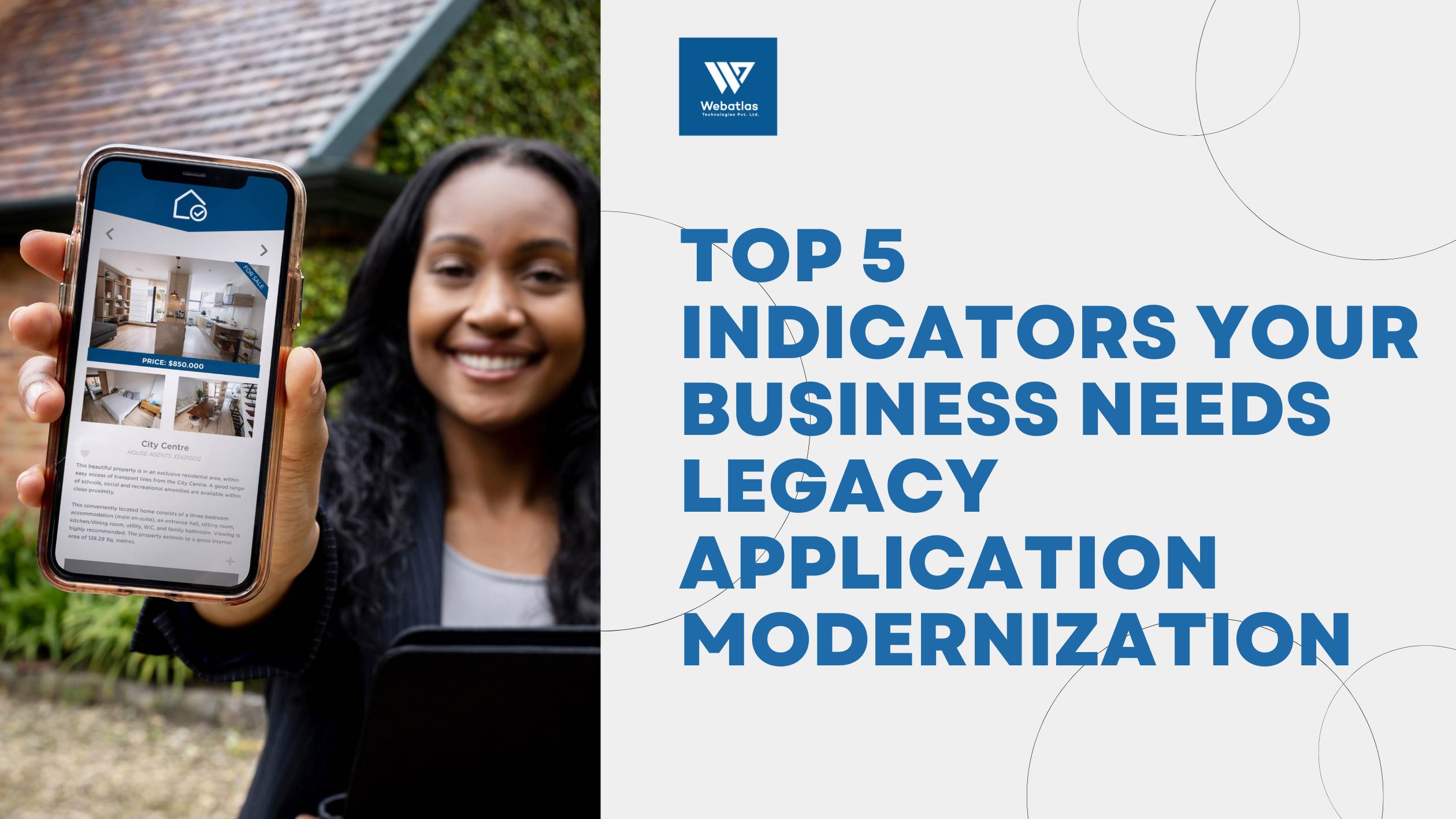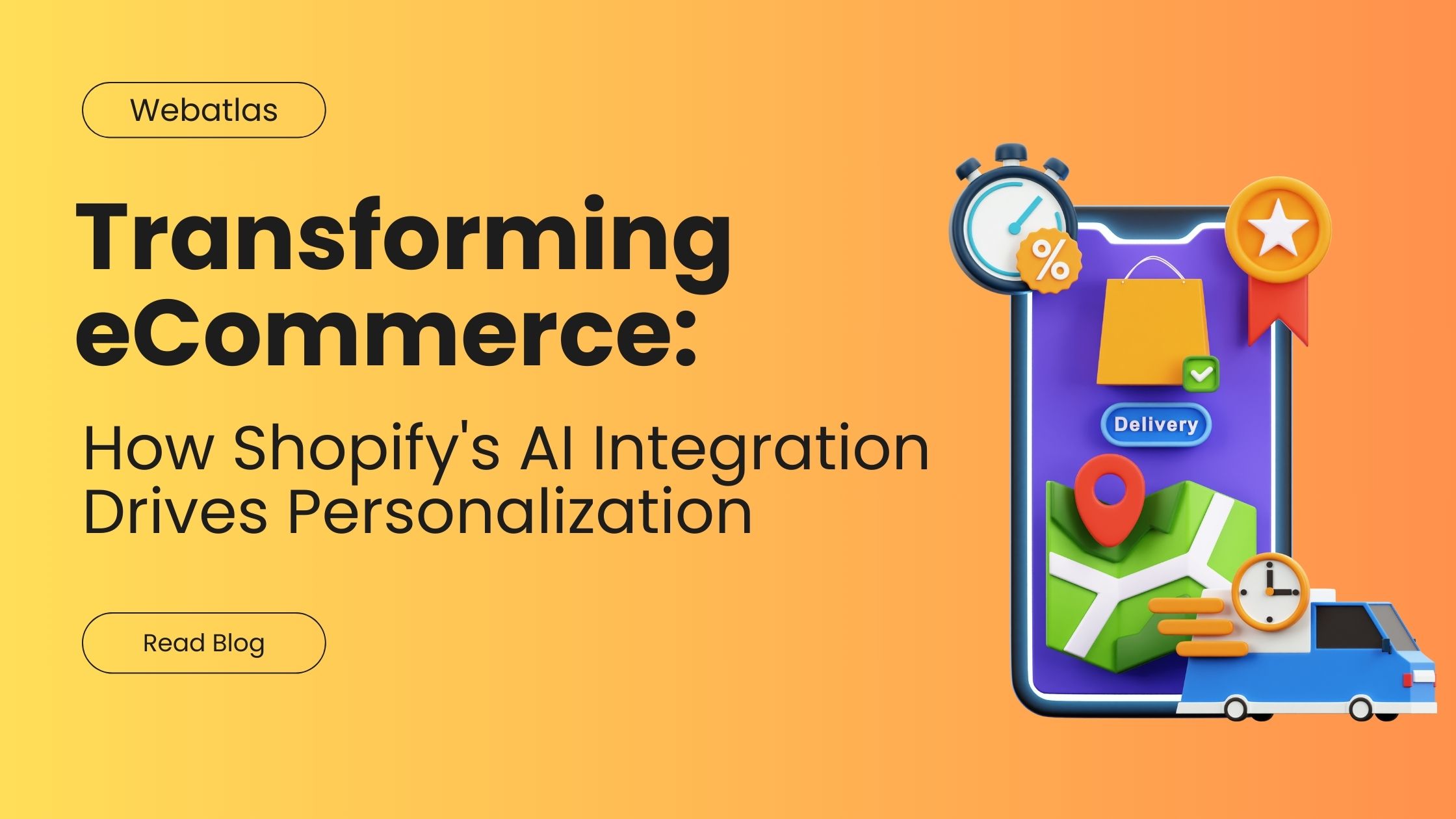Top 5 Signs It’s Time to Modernize Your Legacy Applications

In a fast-moving digital world, technology plays a vital role in shaping business success. Legacy applications, while they may have served well in the past, can become a liability if they fail to keep up with modern demands. Ignoring outdated systems can lead to inefficiencies, security vulnerabilities, and missed opportunities for growth. So how do you know when it’s time to modernize your legacy applications?
In this blog, we’ll uncover the top 5 signs that signal the need for application modernization and discuss how experts like Webatlas, a leading mobile app development company, can guide your business through a seamless transformation.
1. High Maintenance Costs Are Draining Your Budget
Legacy applications are notoriously expensive to maintain. Whether it’s the cost of outdated hardware, ongoing patches, or specialized skills to keep systems running, these expenses can quickly add up.
As newer, more efficient technologies become available, the opportunity cost of sticking with legacy systems grows. Modernizing applications—by migrating to the cloud or adopting modern architectures like microservices—can significantly reduce operating expenses and free up resources for innovation.
Example: Businesses that migrate to the cloud often experience a 30-50% reduction in IT infrastructure costs.
2. Your Applications Struggle with Scalability and Performance
If your systems can’t handle increasing workloads or user demands, they’re holding your business back. Legacy applications often experience performance bottlenecks, especially as businesses grow or integrate new services.
Modernized applications, particularly those running on cloud-native platforms, are built to scale seamlessly. They can accommodate traffic spikes, process large datasets, and handle multiple integrations without compromising performance.
Key takeaway: Scalability is essential for businesses in 2025 as digital engagement continues to grow.
3. Limited Integration with Modern Tools and Technologies
Today’s digital ecosystem thrives on connectivity. Modern applications need to integrate seamlessly with AI, machine learning, data analytics, and other cutting-edge tools. Legacy systems, however, often lack APIs or flexibility, making integration a nightmare.
This lack of connectivity prevents businesses from taking advantage of tools that can improve efficiency, enhance decision-making, and deliver a better customer experience. By modernizing, enterprises can unlock the power of these technologies and remain competitive.
4. Increased Security Risks and Compliance Challenges
Legacy applications are a prime target for cyberattacks. Their outdated security protocols and lack of updates make them vulnerable to modern threats, putting your data and reputation at risk.
In addition, regulatory requirements around data security and privacy have become stricter in recent years. Older systems often fail to comply with these regulations, exposing businesses to potential fines and legal issues.
Modernizing your applications ensures that your systems incorporate advanced security features and remain compliant with evolving regulations.
5. Poor User Experience Is Impacting Customer Satisfaction
User expectations have drastically changed in recent years. Customers and employees demand intuitive, fast, and seamless digital experiences, but legacy applications often fail to deliver.
Clunky interfaces, slow response times, and lack of mobile compatibility can frustrate users, leading to lost customers and decreased employee productivity.
By modernizing your applications, you can redesign the user interface (UI) and user experience (UX) to meet today’s standards, ensuring satisfaction and loyalty among users.
Also Read- What Is Application Modernization? A Comprehensive Guide for Businesses
How Webatlas Helps Enterprises Modernize Legacy Applications
At Webatlas, we specialize in delivering tailored application modernization services to help businesses stay ahead in a competitive digital landscape. With years of experience as a trusted mobile app development company, we provide end-to-end solutions that address your unique challenges and goals.
Our Modernization Services Include:
- Cloud Migration: Transition your legacy applications to secure, scalable cloud environments such as AWS, Azure, or Google Cloud.
- Microservices Implementation: Break down monolithic applications into flexible, modular microservices for easier management.
- DevOps Integration: Streamline your development and deployment processes to improve speed and efficiency.
- UI/UX Revamp: Enhance user experiences with modern, responsive, and user-friendly designs.
- Advanced Security: Protect your systems with the latest security features and ensure compliance with regulations.
Why Choose Webatlas?
- Expert Team: Our developers and architects are skilled in the latest tools and technologies for application modernization.
- Tailored Solutions: We design modernization strategies to suit your business goals and industry needs.
- Proven Results: From reducing costs to improving performance, we deliver measurable outcomes for our clients.
- End-to-End Support: From assessment to post-modernization support, we’re with you every step of the way.
Conclusion
If your business is facing any of these five signs, it’s time to consider application modernization. By upgrading your legacy systems, you can reduce costs, improve performance, enhance security, and deliver better user experiences.
With Webatlas, a leading mobile app development company, you can ensure a seamless modernization journey tailored to your needs. Don’t let outdated systems hold your business back—invest in your future today.
Ready to modernize? Contact Webatlas now to get started!
Recent Post
Let's talk about your project, or just come and say hello!
Webatlas Technologies is the fastest growing web and mobile app development company



